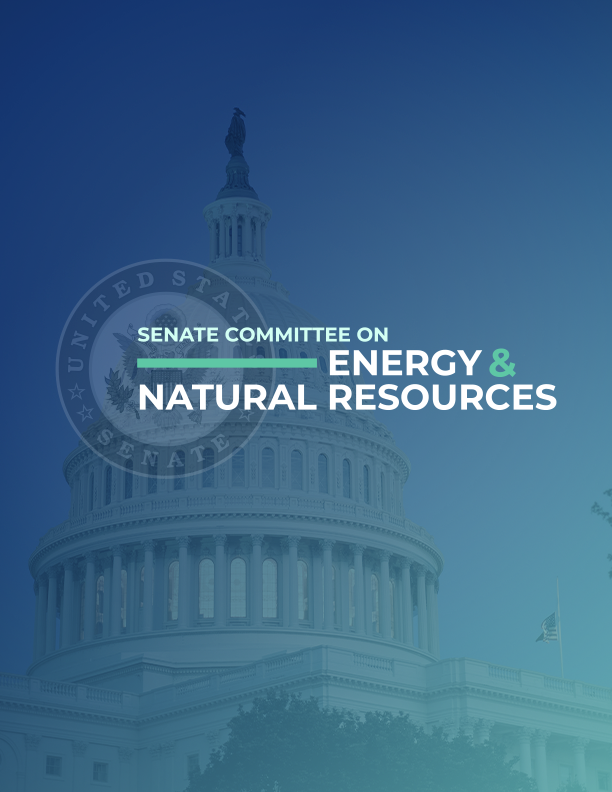Chairman Manchin, Ranking Member Barrasso, distinguished members of the Committee and staff, thank you for the opportunity to participate in today’s hearing. It is an honor to be here alongside the esteemed experts on this panel. I am currently a Senior Fellow at the Center for Security and Emerging Technology (CSET) at Georgetown University where I research S&T policy development and global technology competition. I previously served as the National Counterintelligence Officer for East Asia and for most of my career I have studied China’s science and technology (S&T) development and innovation ecosystem, including its efforts to acquire technology and technological know-how, how these efforts have changed over time and the policies and programs China uses to meet its strategic goals.
My testimony today will first address why the DOE labs are targeted by China and the implications of these policies for the U.S.-China strategic competition. I will provide a brief overview of China’s S&T system and finally discuss research security and potential mitigation strategies. In particular, I will discuss how our systems differ, and how the role of the state impacts and influences all aspects of China’s S&T ecosystem, from universities to its state key labs and its associated industries and provide potential mitigation strategies to protect the national innovation base, specifically the DOE complex. Lastly, I’ll offer lessons learned, which include:
- This is not a DOE problem, but a U.S. wide problem because China’s system is not the same as ours. It takes a holistic approach to developing technology—blurring the lines between public, private, civilian and military.
- China says it will use any knowledge or technology it acquires for its military. This is not conjecture, profiling, or analysis, but China’s stated position for decades. Our policies and mitigation strategies need to reflect this reality.
- Scientists–and innovation–thrive with funding, lab space and freedom to pursue their craft—this is what makes the DOE labs such a tremendous resource. Giving scientists a problem to solve is not the same as giving them a solution. Political control is not the same as scientific control. We assume China cannot meet its strategic technical goals because it is not a democracy at our own peril.
- Beijing has made talent development and the exploitation of overseas students, universities, and government labs a central part of its technology acquisition strategy since the country’s “opening” around 1978.1
- This is why the DOE complex is a target.
- Regardless of their personal views, Chinese scientists, businesspeople and officials interacting with the DOE complex have to respond to the PRC’s government or security services if they are asked for information or data. China intimidates and harshly silences its critics—this has only grown more so in the past few years. This increasingly includes its citizens abroad.
- Beijing in many ways understands our societal tensions, which include race relations, and its statecraft is directed at them, exploiting identity politics by promoting any changes in U.S. policy as ethnic profiling, offering a narrative about being merely a proponent of “development” and science, in order to divert attention from its own questionable behavior. This is a well-funded effort.2
It is because of this last point that I want to acknowledge how difficult and challenging discussing these issues can be. My own grandparents were immigrants who came to this country with little formal education, worked menial jobs and made a new life for themselves. My presence here today is a testament to the American Dream. There is no room for xenophobia or ethnic profiling in the United States — it goes against everything we stand for as a nation. And precisely because of these values, the issues we are discussing today will make us uncomfortable as we move forward to find principled ways to mitigate the policies of a nation-state that is ever more authoritarian, does not share our values and seeks to undermine the global norms of science and commerce and exploit our national innovation base—especially the DOE labs. These challenges are not about the concerns of one administration or the policies of one political party, but the actions of a nation-state with a different system, different regard for human rights and different view of competition, and one that has put in place policies and programs that undermine the very values we hold dear: a fair and level playing field, transparency, reciprocity and market-driven competition.3
Download Full Testimony
Anna Puglisi testimony before Senate Energy and Natural Resources Committee- IBID
- William C. Hannas and Didi Kirsten Tatlow, Beyond Espionage: China’s Quest for Foreign Technology (Routledge 1st edition, September 2020); Alex Joske, “Hunting the Phoenix,” Australian Strategic Policy Institute, 2020, https://www.aspi.org.au/report/hunting-phoenix ; Receipts of local UFWD paying overseas scientists available at: “The distribution list of provincial-level projects for the introduction of foreign intelligence special funds at the provincial level in 2018” [2018年省级引进国外智利专项经费直项目分配明细表], https://web.archive.org/web/20201112190122/http://webcache.googleusercontent.com/search?q=cache%3AKAaZ3LpEe4oJ%3Arst.hunan.gov.cn%2Frst%2Fxxgk%2Ftzgg%2F201802%2F9516964%2Ffiles%2Fe1c7ddd51dda49f6b70a6ad5ae9b0490.xls+&cd=3&hl=en&ct=clnk&gl=us
- E.g., “The IP Commission Report.” The Commission on the Theft of American Intellectual Property (May 2013). Hannas, Mulvenon and Puglisi, Chinese Industrial Espionage. (Routledge, 2013) hereafter “CIE.” Michael Brown and Pavneet Singh, “China’s Technology Transfer Strategy” (DIUX, February 2017). Section 301 Report into China’s Acts, Policies, and Practices Related to Technology Transfer, Intellectual Property, and Innovation. Office of the United States Trade Representative (27 March 2018). U.S.-China Economic and Security Review Commission, “2019 Annual Report to Congress” (November 2019).
